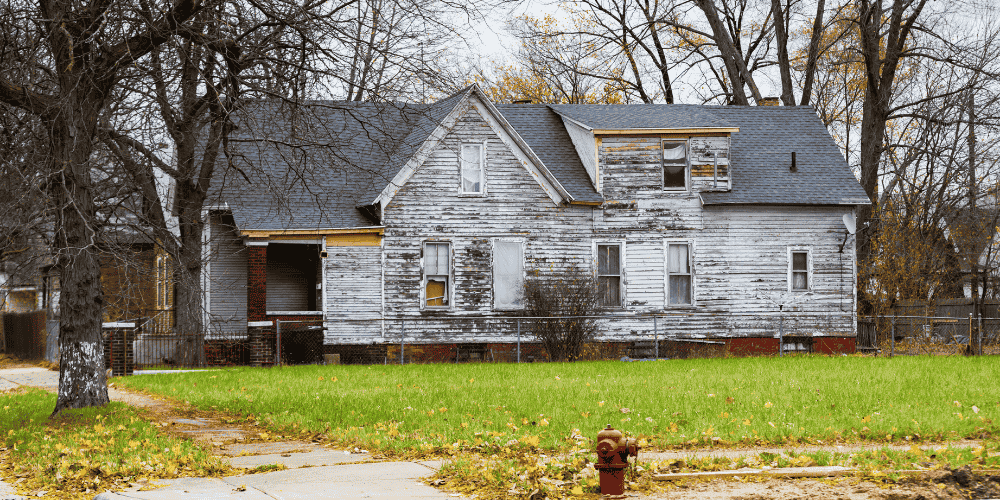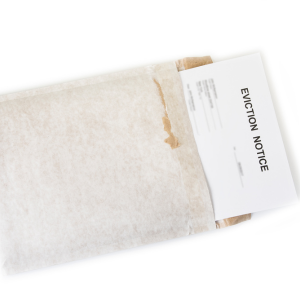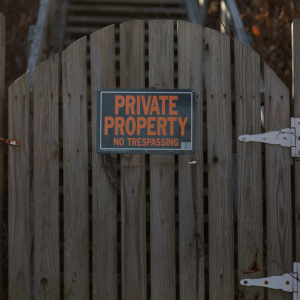What is Adverse Possession in Ohio?
Adverse possession in Ohio lets one person assert the ownership of another’s land through continuous use under specified conditions. For a certain duration, this requires the individual to occupy the property in a hostile, actual, open, continuous, and exclusive way. Should these criteria be satisfied, the legal title can pass to the possessor, significantly affecting property rights in Ohio.
How Long Should Occupancy Be to Claim Adverse Possession?
To successfully claim adverse possession in Ohio, one must keep ongoing possession of the property. The Ohio Revised Code specifies that the person must have 21 years of continuous property occupation. Meeting these criteria guarantees that the claimant’s activity can generate a legal title during this time.
What Makes Possession “Open and Notorious”?
“Open and notorious” possession is when the occupancy is evident and plain so that the property owner and the public can acknowledge the occupier’s claim. This visibility defines whether one has legal standing in claims of adverse possession. Supporting the assertion by expressly controlling the property, such as enhancing structures or landscaping, demonstrates presence. The owner, therefore, must not endorse this endeavor.
Legal Procedures for Evicting a Squatter in Ohio
May I remove a squatter myself? Self-Help Eviction Risks
Attempting to evict a squatter in Ohio might cause significant legal problems. Self-help eviction is illegal and involves physically removing a squatter or changing a lock. Dealing with trespassing could motivate property owners to act, but only the authorities can manage such circumstances. Following the legal eviction procedure lets you follow Ohio laws and protect your legal rights.
Steps and Requirements of the Formal Eviction Process
Ohio’s sanctioned eviction procedure offers property owners a systematic way to remove squatters lawfully. The following required actions are:
- Eviction Notice: To begin with, officially serve the squatter with an eviction notice. This will inform them of their breach and the need to depart.
- Legal Filing: Should the squatter stay, file a legal case. This action officially starts the eviction procedure.
- Court Hearing: Attend the court hearing, where you will present your case and proof against the squatter. The court’s assessment will be based on Ohio’s eviction statutes for squatters.
- Judgment and Removal: If the court rules in your favor, it will issue a legitimate eviction order. Law enforcement will then carry out this order to ensure the squatter vacates the premises.
Following these guarantees your actions satisfy legal criteria, hence lowering the possibility of conflicts and responsibility.
What Proof Will Let Me Successfully Evict a Squatter?
Successfully evicting a squatter calls for compelling evidence. It improves your legal standing in court. Among the best records and documents:
- Property Deeds and Ownership Documents: These say your ownership and property rights.
- Photographs or Videos: Record any property damage and the squatter’s presence using videos or photos.
- Communication Records: Maintain any correspondence with the squatter, including emails or written notices.
- Witness Statements: Collect statements from neighbors or others who can support your claims about the squatter’s occupancy or any illegal activity.
Careful record-keeping will help you improve your court case and assert your property rights via legal action.
Preventing Squatting: Proactive Steps for Property Owners
Effective Policy on Security for Vacant Properties
Property owners have to lock up vacant buildings, especially in Ohio, where land ownership rights are crucial. Good security policies discourage illegal entrance and safeguard property values. Think about the following steps:
- Install High-Quality Locks and Alarms: Strong locks should be installed at all entry points, and an alarm system should be set up to warn of illegal access.
- Engage Security Services: Employing a security firm for ongoing patrols or surveillance helps to make empty houses safer.
Following these guidelines enables Ohio property owners to protect their assets and maintain their land ownership rights. For homeowners who prefer to avoid the stress and ongoing responsibilities of managing a vacant property, Lorain County Homebuyers offers a fast, cash-based solution in Lorain—allowing you to sell your house as-is and move on without the risk of squatting.
Regular Maintenance and Inspections: Their Relevance in Squatter Prevention
Routine maintenance and inspections help to avoid squatter problems. Regular property management guarantees asset care and keeps an owner’s presence, preventing prospective squatters. Think about these techniques:
- Conduct Regular Inspections: Inspect your property frequently to find entry points or early indications of unauthorized presence. Inspect your property often to assess its state and look for potential early access points or indications of illegal occupancy.
- Perform Routine Maintenance: Maintain the house in good condition. A neat look indicates ongoing maintenance and observation.
- Employ Trustworthy Property Managers: Using a property management firm guarantees regular monitoring and maintenance if one cannot physically oversee duties.
Regular upkeep and inspections help property owners lower the likelihood of running across squatters.
Legal Actions to Take Before a Squatter Occupies Your Property
Property owners must understand Ohio eviction laws for squatters if they wish to respond fast with lawful preventive measures. Think about these actions before unlawful occupancy:
- Understand Your Legal Rights: Learn about Ohio property laws and eviction processes related to squatting to grasp your legal rights.
- Consult With Legal Professionals: Use a real estate lawyer to discover legal protection and compliance possibilities.
- Written Evidence: Maintain detailed records on individuals or activities connected to trespassing or unlawful occupation attempts.
- Submit Trespass Notices Without delay: If you suspect a squatter, immediately file official notices to indicate your desire to assert your rights.
Early legal action can simplify eviction and offer a strong defense against undesirable tenancy. Knowing and being ready to protect their rights and assets correctly helps property.
Trespassing and Squatting in Ohio: Legal Ramifications
Trespassing and Squatting: Civil and Criminal Penalties
Ohio’s laws on trespassing and squatters’ rights have criminal and civil ramifications. Entering another person’s property without permission could result in criminal penalties such as jail time or fines. Conversely, in Ohio law, if some criteria are satisfied, squatting could become a legal claim over the property through adverse possession.
Among the civil repercussions of trespassing and squatting are potential lawsuits for damages and legal property recovery. While seeking damages, property owners can sue squatters to remove them. These fines draw attention to the need to know Ohio law since it defines squatters’ rights.
What Happens Should Your Property Be Improved by a Squatter?
Ohio property laws cause problems should a squatter improve your property. Such circumstances demand a careful examination of real estate rights. A squatter could assert ownership under adverse occupation by constantly occupying and strengthening the land over a given period.
However, property owners retain their rights and should act quickly on any unapproved modifications. Protecting real estate rights under Ohio property laws requires legal counsel since legal claims regarding changes might create ownership conflicts.
Knowing the Differences Between Squatting and Trespassing
Understanding the distinctions between squatting and trespassing is particularly crucial regarding Ohio squatters’ laws and eviction processes. While trespassing is the illegal entry or staying on someone else’s property, squatting is residing in an abandoned or deserted spot to claim possession.
Ohio’s eviction laws for squatters define steps property owners must take to evict unlawful inhabitants. Knowing these legal phrases and distinctions enables you to properly handle any issue. Ohio property owners should know these regulations to avoid illegal usage or lawsuits against their property.
More Information and Resources on Ohio Squatter’s Rights
Finding Legal Representation for Property Conflicts
Dealing with property issues, particularly those concerning squatter’s rights, makes getting qualified legal guidance crucial. During the litigation phase, property law attorneys provide advice and representation. Whether coping with eviction problems or grasping negative possession, attorneys help navigate Ohio’s legal system. Legal aid groups could provide resources for people unable to afford conventional legal services if cost is an issue.
Trustworthy Government Agencies and Online Help Tools
Websites and several government agencies can greatly support Ohio squatter’s rights. A good beginning for grasping state property laws is the Ohio Revised Code. Official local government websites also provide plenty of information and directories to direct you to support services and legal help. These tools clarify your legal standing and rights connected to squatting concerns.
Frequently Asked Questions
Particularly in Ohio, what are squatters’ rights in the Midwest?
Adverse possession acknowledges the rights of squatters in Ohio and the more broad Midwest. This legal idea lets someone who meets particular legal requirements maybe claim ownership if they publicly and persistently occupy a property for a defined period.
How do Ohio squatter rules stack up against those in other states?
Like many other places, Ohio’s squatter laws allow for ongoing occupation, usually 21 years. In the interim, every state has particular guidelines regarding property occupancy and adverse possession
What legal protections exist for squatters in Ohio?
Ohio’s adverse possession statutes offer squatters several safeguards. They must publicly and continuously utilize the property, meet specific requirements, including needing the owner’s consent, and inhabit it without disturbance.
What can Ohio property owners do to prevent squatter issues?
Regular property inspections notice postings of abandoned sites, and tenant screening regulations help owners prevent squatters. Knowing local eviction rules and property taxes could also help.
How does Ohio law enforcement handle squatters?
Ohio law enforcement can help execute eviction notifications when suitable. Legal papers and appropriate follow-up of eviction procedures are still necessary to guarantee compliance with state rules.
What are the next steps should squatters decline to leave a property in Ohio?
If squatters refuse to leave, owners should submit an eviction notice and begin legal action. Talking to lawyers knowledgeable about Ohio’s adverse possession rules can help you recover your property.
How does the Ohio Supreme Court influence squatters’ rights?
The Ohio Supreme Court reads decisions on squatters’ rights and establishes precedents. Its rulings determine how adverse possession matters are handled, hence affecting squatters and property owners.
What tools exist in Ohio to know and handle squatters’ rights?
Ohio property owners can visit government websites, property management companies, and legal aid organizations for advice on adverse possession laws and squatters’ rights. Local legal attorneys and real estate experts could also provide helpful analysis.
Key Insights
- Property owners have to deal with illegal occupancy issues by first understanding squatters’ rights in Ohio.
- Ohio squatter laws define the process and requirements for establishing adverse possession or squatters’ rights in the state.
- The Ohio Revised Code indicates how continuous possession could grant squatters legitimate titles.
- Tenants and landlords should know their rights and responsibilities under Ohio squatters’ protection to stop unlawful possession.
- Knowledge of Ohio’s eviction procedures and regular property inspections can help combat possible criminal activity.
- Investors and property managers should understand the effects of Ohio’s adverse possession laws and squatters’ property rights.
- Details about squatters’ rights in Ohio serve to clarify the criteria for a successful adverse possession claim.
- Knowing Ohio squatter rights and routine upkeep well will help to prevent the unlawful seizure of vacant properties.
- Understanding squatter’s rights in Ohio law helps homeowners and real estate professionals negotiate legal conflicts properly.
- To prevent squatting and ensure legal occupation, property management teams need to have effective tenant screening practices.
- Dealing with squatters calls for suitable legal action by property owners, including an eviction notice.
- Talking over legal definitions of squatters’ rights with experts ensures state law compliance.
- Lease agreements must clearly specify occupancy periods if they are to enable landlords to protect property rights.
- Working proactively with real estate professionals and lawyers helps to minimize squatter claims and encourage appropriate property management.
- Market studies show Midwest-related tendencies linked to squatters’ rights, hence offering insight into local concerns.
- Working with attorneys helps to manage issues relating to unlawful possession and eviction actions.
- Library archives and Ohio legal aid are among the tools guaranteeing access to present property regulations.
- Collecting evidence and fact-checking assist court cases concerning allegations made by squatters.
- Decisions of the Ohio Supreme Court have a major influence on current readings of squatters’ laws and property rights.
Understanding Ohio’s adverse possession laws underscores just how important proactive property management is. But for many homeowners—especially those with vacant properties or inherited homes—keeping up with inspections, legal notices, and security can become a serious burden. In such situations, working with a reputable cash home-buying service like Lorain County Homebuyers offers a hassle-free and fast solution in buying homes in Lorain. Contact us at (440) 681-2114 today to request your free, no-obligation cash offer and take control of your property’s future.




